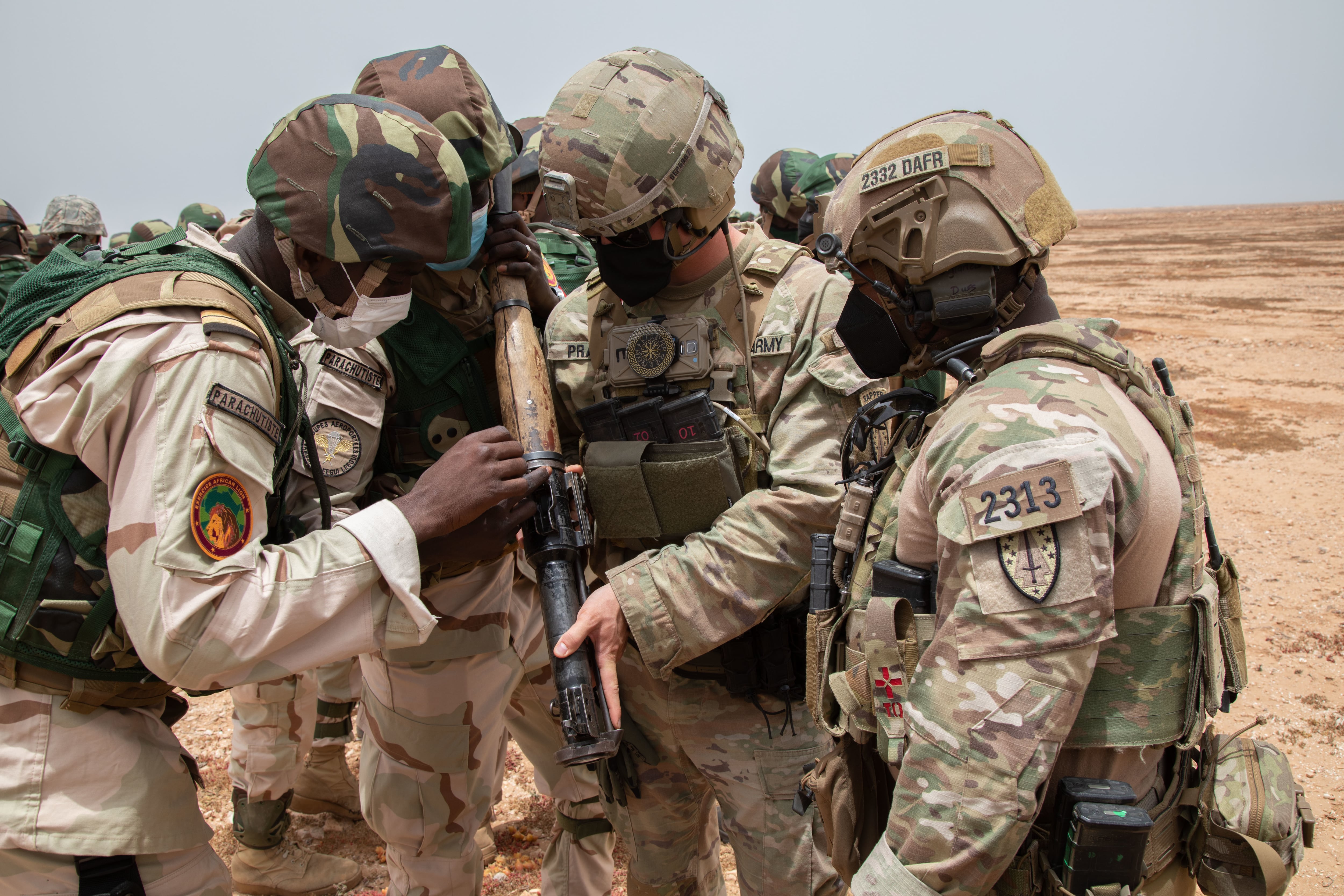The United States military wrapped up its largest annual joint exercise in Africa on Friday, one marked by a few firsts for the continent-wide drill, according to U.S. Army Southern European Task Force.
African Lion 2023 was hosted by four African countries and included more than 8,000 personnel. Seventeen countries and numerous NATO partners participated in the month-long exercise, which was carried out between May 13 and June 16 in Morocco, Senegal, Tunisia and Ghana.
“Our collective ability to bring like-minded nations together for an exercise like this is truly impressive,” Maj. Gen. Joel Tyler, U.S. Africa Command chief of staff, said in a statement. “African Lion is the centerpiece of the AFRICOM exercise strategy, and one of the greatest U.S. exercises across the globe.”
Among a number of firsts during the annual drill, the Marine Corps fired High Mobility Artillery Rocket Systems, or HIMARS, for the first time on African soil.
HIMARS munitions have gained notoriety in the wake of Russia’s February 2022 invasion of Ukraine. Since January, the U.S. has sent at least 20 such systems to Ukraine. The weapons shipments have come amid continued concerns over operations by Russia’s mercenary Wagner Group, which is currently operating across Africa, specifically in the Central African Republic, Libya and Sudan.
This year’s exercise concluded as the U.S. is also working to counter China’s growing influence in the region. While the Chinese military already operates in Djibouti, there is concern that another base on the continent could soon be in development.
During a House Armed Service Committee hearing last year, then-AFRICOM commander Army Gen. Stephen Townsend expressed concern that the Chinese government might make a play to build a base in western Africa. Beijing had already made significant progress in Equatorial Guinea, Townsend said during the hearing.
In another first, Utah Gov. Spencer Cox visited the African Lion exercise for the first time, according to U.S. Army Southern European Task Force. Morocco and the Utah National Guard celebrated 20 years participating in the State Department’s State Partnership Program, which is meant to strengthen military relationships between the U.S. and other countries.
“Over the years, what I’ve seen is that relationship [with Morocco] has continued to grow,” Maj. Jared Sorensen of the Utah National Guard told Military Times. “So, when we fire artillery out here, it takes a lot of trust, and so that friendship grows really quickly. ... And just in the last two weeks that we’ve been out here, I’ve seen guys make really good friendships and strong connections with our Moroccan counterparts.”
African Lion was also joined by its first multi-domain task-force element, personnel spread across cyberspace, intelligence, electronic warfare and space domains. The 2nd Multi-Domain Task Force provides those services to U.S. Army Europe and Africa, according to the 2nd MDTFs website.
Beyond the Utah Guard’s relationship with Morocco and the shipment of HIMARS munitions, the U.S. has continued efforts to strengthen ties with militaries on the continent. Numerous African countries have hosted the U.S. 2nd Security Force Assistance Brigade — a smaller unit meant to train foreign militaries — to train alongside partner forces.
The 2nd SFAB has trained militaries in Morocco, Tunisia, Senegal, Somalia, Djibouti, Botswana and Zambia. In Ghana, U.S. forces assisted with establishing a school that prepared soldiers for U.N. peacekeeping missions.
U.S. forces continue to have some 700 boots on the ground in advisory and training roles in Somalia, where the federal government is continuing its fight against the extremist group al-Shabab.
Zamone “Z” Perez is a reporter at Military Times. He previously worked at Foreign Policy and Ufahamu Africa. He is a graduate of Northwestern University, where he researched international ethics and atrocity prevention in his thesis. He can be found on Twitter @zamoneperez.




